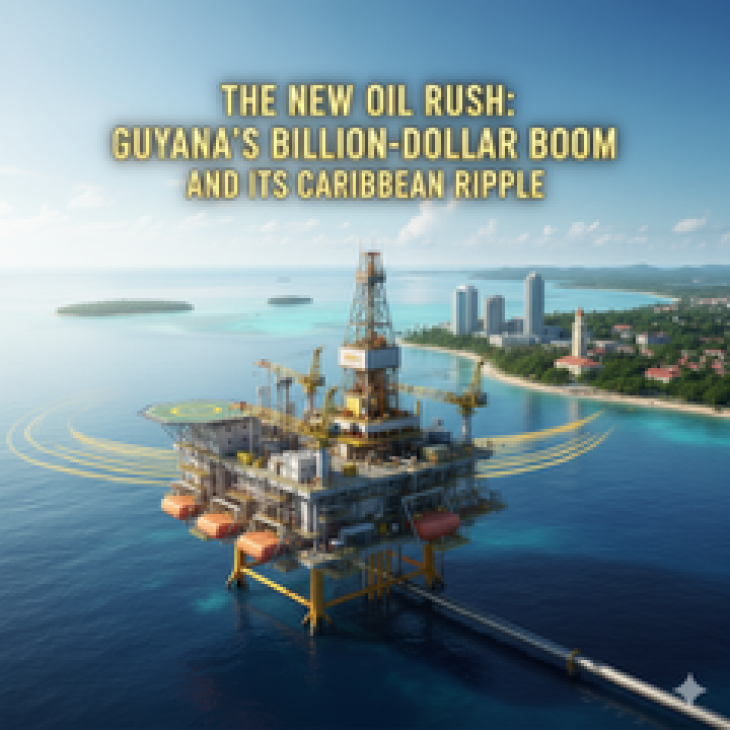
By Publisher Ray Carmen
In the heart of South America, along the untouched coasts of Guyana, a quiet revolution is underway—one that promises to reshape the Caribbean’s economic and political landscape. The discovery of vast offshore oil reserves has propelled Guyana from obscurity to global headlines, sparking dreams, debates, and dilemmas across the region.
A Boom Beyond Borders
Since the first commercial oil discovery in 2015, Guyana has seen an unprecedented economic surge. Billions of dollars in foreign investment, multinational energy firms, and infrastructure projects have transformed this once-sleepy nation. The effects ripple through the Caribbean, influencing trade, migration, and investment patterns. Nations like Trinidad & Tobago, Suriname, and Barbados are now watching closely—calculating their own strategies to benefit from, or compete with, this sudden wealth.
Economic Promise and Peril
Oil brings jobs, roads, and a new international profile. Yet with wealth comes risk. Economists caution against the “resource curse”—where rapid inflows of money fuel corruption, inequality, and over-dependence on a single commodity. Guyana’s neighbors are keenly aware: the Caribbean has witnessed similar patterns with sugar, bananas, and tourism. The question is, can Guyana navigate this boom responsibly, and can the region harness it to uplift all?
Shifting Geopolitics
The oil boom has attracted powerful allies—and rivals. The United States, China, and India are all staking claims in exploration, infrastructure, and trade agreements. For small Caribbean nations, Guyana’s rise represents both an opportunity and a challenge: alliances are being reconsidered, trade routes recalibrated, and the region’s political balance subtly shifting.
Social and Environmental Stakes
Beyond economics and geopolitics lies the human and environmental impact. Offshore drilling threatens marine ecosystems, fishing communities, and coastal livelihoods. Indigenous groups, local activists, and regional policymakers are demanding a voice in decisions that will shape generations. The “oil rush” is not just a story of profit; it’s a story of identity, sustainability, and stewardship.
Conclusion
Guyana’s rise as an oil powerhouse is a defining moment for the Caribbean. It is a chance for the region to rethink cooperation, leverage resources, and redefine its place on the global stage. The question remains: can wealth and wisdom coexist, or will the Caribbean once again learn hard lessons from a boom too fast to manage?
Suggested Feature Image: Aerial view of Guyana’s offshore oil rigs at sunset, with the Atlantic waves glistening beneath—symbolizing both opportunity and risk.
If you like, we can turn this into a polished magazine-ready layout too, with:
-
Pull quotes from economists or local leaders
-
Infographics on GDP growth vs. environmental impact
-
Maps showing Guyana’s oil fields and Caribbean trade influence
Do you want me to start preparing that version next?




